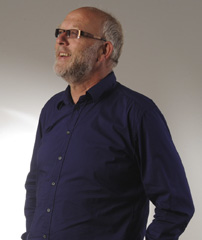 How does New Zealand capture more value from increased tourism numbers?
How does New Zealand capture more value from increased tourism numbers?
One solution is matching what we have to offer with what the visitor understands; by improving the experience of the tourist, they are then encouraged to lengthen their stay.
The key to understanding is research according to Professor Juergen Gnoth who has been studying productivity in the tourism sector for many years. The University of Otago Business School is conducting a broad range of research covering tourists' consumption behavior, as well as destination branding and tourism destination marketing.
Professor Gnoth has already produced Tourist Profiles on Australian, American, Japanese and German markets. They show the more tourism and hospitality operators understand, the better equipped they are at amplifying the visitor experience and helping visitors to enjoy what New Zealand has to offer.
Having derived more meaning from their experience, the visitor is more satisfied and gains greater well-being, and that is translated to more visitor nights.
But Professor Gnoth explains that doesn't mean changing the New Zealand experience.
“Visitors come here to immerse themselves in our country, so we need to make that unique experience accessible. To make a brand more productive for business it has to be authentic and of interest to the customer – which could be as simple as having signs and pamphlets in Mandarin, or even understanding the culture enough to communicate effectively in sign language.”
About the research
Professor Gnoth has identified some of the core cultural factors influencing tourism behaviour, including well-being, physical activity and purchasing decisions. He has built up basic knowledge, such as the importance of dignity or “Face” in the consumption behaviour of Chinese people.
He has measured how international tourists get involved with local culture, with activities, and the benefits they derive. This research is informing how company brands can help build and leverage destinations, and helps managers build stronger relationships that enhance destination sustainability, competitiveness and productivity.
He is keen to see the country take advantage of the research and consolidate the New Zealand experience, with a comprehensive approach to making use of the knowledge.
“We need to help New Zealand tourism and hospitality operators understand why cultural understanding is important, and to detail what they can do to enhance the experience of their clients with a consistent product so they come back for more.”







